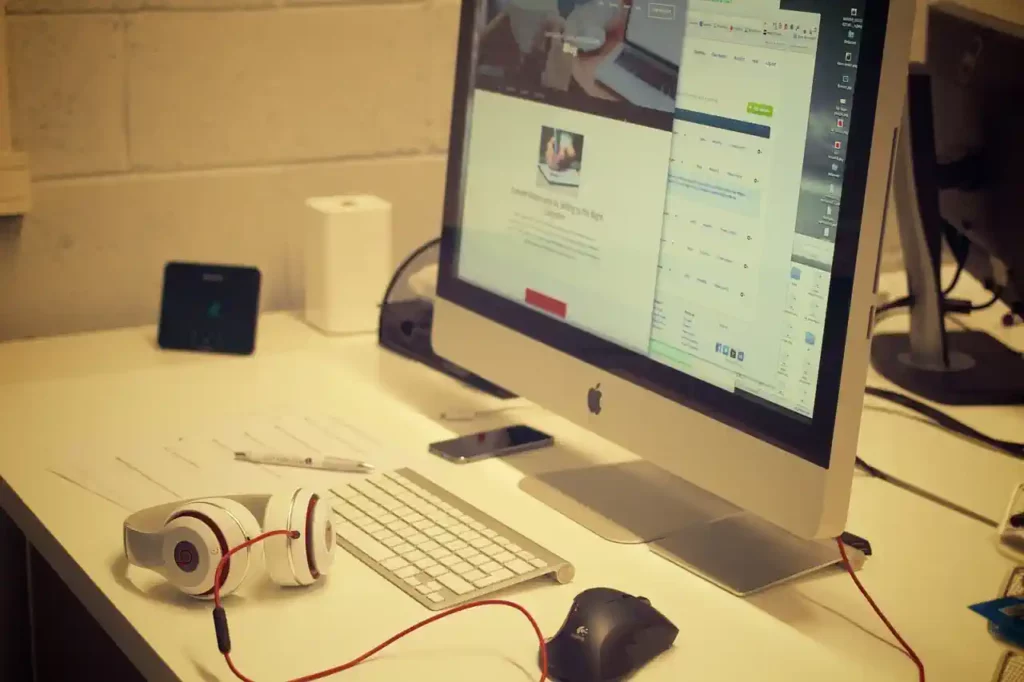How To Make Money Selling Beats (Complete Guide)
Hey there, fellow beat enthusiasts! If you’ve stumbled upon this article, chances are you’re curious about how to make money selling beats, and boy, do I have some juicy secrets for you! Prepare to have your mind blown as we dive into the world of beat-selling and uncover the hidden gems that can turn your passion into a cash-making machine.
As a fellow beat aficionado, I’ve been where you are, and trust me, the journey to beat-selling success is as exhilarating as a sick beat drop. So sit tight, grab your headphones, and let’s embark on this musical rollercoaster ride together. But first, a fair warning: the information you’re about to read is so unbelievably awesome, you might have to pinch yourself to make sure you’re not dreaming! Are you ready to discover the secrets of how to make money selling beats?
Let’s go!
Making money by selling beats is a great way to turn your passion for music into a profitable business. With the rise of digital music production and online marketplaces, it has become easier than ever to sell your beats to artists and producers around the world. In this article, we will discuss some tips and strategies on how to make money selling beats.
Maximizing Your Earnings: Tips for Selling Beats Online

As a music producer, selling beats online can be a lucrative way to earn a living. However, it can be challenging to stand out in a crowded market and make a significant profit. In this article, we will explore some tips for maximizing your earnings when selling beats online.
Firstly, it is essential to have a strong online presence. This means having a professional website and social media accounts that showcase your work. Your website should be easy to navigate and have a clear call-to-action for potential customers to purchase your beats. Social media is also a powerful tool for promoting your beats and engaging with your audience. Consistently posting high-quality content and engaging with your followers can help build a loyal fan base and increase your sales.
Another crucial aspect of selling beats online is pricing. It can be tempting to price your beats low to attract more customers, but this can actually hurt your earnings in the long run. Instead, consider pricing your beats based on their quality and demand. You can also offer different pricing tiers for exclusive rights or leasing options. It is important to find a balance between affordability and profitability.
Collaborating with other artists and producers can also help increase your exposure and earnings. By working with other musicians, you can tap into their fan base and reach a wider audience. You can also offer discounts or bundle deals for customers who purchase beats from multiple producers. Collaborating with other producers can also lead to new creative ideas and help you improve your skills.
Marketing is another crucial aspect of selling beats online. You can use various marketing strategies such as email marketing, paid advertising, and influencer marketing to promote your beats. Email marketing is an effective way to reach your audience directly and keep them updated on new releases and promotions. Paid advertising can help you reach a wider audience and increase your sales. Influencer marketing involves partnering with social media influencers who can promote your beats to their followers.
Finally, it is essential to continuously improve your skills and stay up-to-date with industry trends. This means investing in high-quality equipment and software and attending workshops and conferences. You can also learn from other successful producers and study their techniques and strategies. By continuously improving your skills, you can create better quality beats and attract more customers.
In conclusion, selling beats online can be a profitable way to earn a living as a music producer. By having a strong online presence, pricing your beats appropriately, collaborating with other artists, marketing effectively, and continuously improving your skills, you can maximize your earnings and stand out in a crowded market. It takes hard work and dedication, but with the right strategies, you can turn your passion for music into a successful career.
Building Your Brand: Marketing Strategies for Beat Producers

As a beat producer, you have a unique talent that can be monetized. However, making money selling beats is not as easy as it sounds. You need to have a solid marketing strategy to build your brand and attract potential clients. In this article, we will discuss some effective marketing strategies that can help you make money selling beats.
Firstly, you need to have a professional website that showcases your beats. Your website should be easy to navigate and visually appealing. It should also have a section where potential clients can listen to your beats and purchase them. You can also include a blog section where you can share your experiences as a beat producer and offer tips to aspiring producers. This will help you establish yourself as an authority in the industry and attract more clients.
Secondly, you need to have a strong social media presence. Social media platforms such as Instagram, Twitter, and Facebook are great tools for promoting your beats. You can use these platforms to share snippets of your beats, behind-the-scenes footage of your production process, and interact with your followers. You can also collaborate with other producers and artists on social media to expand your reach and attract more clients.
Thirdly, you need to network with other industry professionals. Attend music conferences, festivals, and events to meet other producers, artists, and industry executives. This will help you build relationships and establish yourself as a serious player in the industry. You can also join online forums and groups where you can connect with other producers and share your beats.
Fourthly, you need to offer value to your clients. Apart from selling beats, you can offer additional services such as mixing and mastering, custom beats, and music production lessons. This will help you attract more clients and increase your revenue streams.
Lastly, you need to be consistent in your marketing efforts. Building a brand takes time and effort. You need to consistently promote your beats and engage with your followers to build a loyal fan base. You can also offer discounts and promotions to incentivize your clients to purchase your beats.
In conclusion, making money selling beats requires a solid marketing strategy. You need to have a professional website, a strong social media presence, network with other industry professionals, offer value to your clients, and be consistent in your marketing efforts. By following these strategies, you can establish yourself as a successful beat producer and make a living doing what you love.
Collaborating with Artists: How to Make Money Selling Beats for Songs

As a music producer, one of the most lucrative ways to make money is by selling beats to artists. However, it’s not as simple as just creating a beat and putting it up for sale. Collaborating with artists is key to making money selling beats for songs.
The first step in collaborating with artists is to build relationships. Attend local shows and events, network with artists, and get to know their style and sound. This will help you understand what type of beats they are looking for and how you can tailor your production to meet their needs.
Once you have established relationships with artists, it’s important to communicate effectively. Be clear about your pricing and what you can offer. Make sure you understand the artist’s vision for their song and work together to create a beat that fits their style and message.
Another important aspect of collaborating with artists is to be flexible. Be open to feedback and willing to make changes to the beat if necessary. Remember, the artist is the one who will be using the beat for their song, so it’s important to make sure they are happy with the final product.
In addition to collaborating with artists, it’s also important to market your beats effectively. Use social media platforms like Instagram and Twitter to showcase your work and reach a wider audience. You can also create a website or online store where artists can purchase your beats directly.
When it comes to pricing your beats, there are a few different approaches you can take. Some producers charge a flat rate for a beat, while others charge a percentage of the royalties earned from the song. It’s important to do your research and understand what other producers are charging for similar beats.
Finally, it’s important to protect your work. Make sure you have a contract in place with the artist that outlines the terms of the collaboration and how the beat can be used. You can also register your beats with a performing rights organization like ASCAP or BMI to ensure you receive proper credit and compensation for your work.
In conclusion, collaborating with artists is essential to making money selling beats for songs. Building relationships, communicating effectively, being flexible, marketing your beats, pricing them appropriately, and protecting your work are all key factors in a successful collaboration. By following these tips, you can turn your passion for music production into a profitable business.
Licensing Your Beats: Understanding the Different Types of Music Licenses
As a music producer, selling beats can be a lucrative way to make money. However, it’s important to understand the different types of music licenses available to ensure that you’re properly compensated for your work. In this article, we’ll explore the various types of music licenses and how they affect your earnings.
Firstly, it’s important to understand that when someone purchases a beat from you, they’re not actually buying the rights to the music. Instead, they’re buying a license to use the beat in a specific way. There are several types of music licenses, each with its own set of restrictions and requirements.
The most common type of music license is the non-exclusive license. This type of license allows the buyer to use the beat for their own projects, but it also allows you to continue selling the beat to other buyers. Non-exclusive licenses are typically cheaper than exclusive licenses, but they also offer less control over how the beat is used.
Exclusive licenses, on the other hand, give the buyer complete control over the beat. When someone purchases an exclusive license, they’re buying the rights to use the beat exclusively for their own projects. This means that you can no longer sell the beat to anyone else. Exclusive licenses are typically more expensive than non-exclusive licenses, but they offer more control over how the beat is used.
Another type of music license is the sync license. This type of license is required when a beat is used in conjunction with visual media, such as a movie or TV show. Sync licenses are typically more expensive than non-exclusive or exclusive licenses, but they offer the opportunity for greater exposure and higher earnings.
It’s also important to understand the difference between commercial and non-commercial licenses. A commercial license is required when a beat is used in a project that generates revenue, such as a commercial or a film. Non-commercial licenses, on the other hand, are used for projects that don’t generate revenue, such as student films or personal projects.
When licensing your beats, it’s important to be clear about the terms and conditions of the license. This includes specifying how the beat can be used, how long the license is valid for, and how much the buyer will be required to pay. It’s also important to include a clause that specifies that you retain ownership of the beat and that the buyer is not allowed to resell or distribute the beat without your permission.
In addition to understanding the different types of music licenses, it’s also important to protect your work. This includes registering your beats with a performing rights organization (PRO) such as ASCAP or BMI. PROs collect royalties on behalf of their members and ensure that they’re properly compensated for their work.
In conclusion, understanding the different types of music licenses is essential for anyone looking to make money selling beats. Non-exclusive licenses offer less control but are cheaper, while exclusive licenses offer more control but are more expensive. Sync licenses are required for visual media, while commercial licenses are required for projects that generate revenue. By being clear about the terms and conditions of the license and protecting your work through a PRO, you can ensure that you’re properly compensated for your hard work.
Expanding Your Reach: Selling Beats on Multiple Platforms

As a music producer, selling beats is one of the most lucrative ways to make money in the industry. However, it can be challenging to find the right platform to sell your beats and reach a wider audience. In this article, we will explore how to expand your reach by selling beats on multiple platforms.
The first step in expanding your reach is to identify the platforms that are most suitable for your beats. There are several platforms available, including Beatstars, Airbit, Traktrain, and many more. Each platform has its unique features, pricing, and audience. Therefore, it is essential to research and compare the different platforms to find the one that best suits your needs.
Once you have identified the platforms, the next step is to create a profile and upload your beats. It is crucial to ensure that your profile is professional and showcases your brand. This includes having a professional profile picture, a bio that highlights your skills and experience, and a portfolio of your best beats.
When uploading your beats, it is essential to ensure that they are of high quality and meet the standards of the platform. This includes having clear and crisp sound quality, proper tagging, and a catchy title that will attract potential buyers. Additionally, it is crucial to price your beats competitively to attract buyers while still making a profit.
One of the benefits of selling beats on multiple platforms is that it allows you to reach a wider audience. Each platform has its unique audience, and by selling on multiple platforms, you can tap into different markets and increase your chances of making sales. Additionally, it allows you to diversify your income streams and reduce the risk of relying on one platform.
Another benefit of selling beats on multiple platforms is that it allows you to test different pricing strategies. Each platform has its pricing structure, and by selling on multiple platforms, you can experiment with different pricing strategies to find the one that works best for you. This includes offering discounts, bundle deals, and exclusive rights.
However, it is essential to ensure that you do not spread yourself too thin by selling on too many platforms. It is crucial to focus on a few platforms that are most suitable for your beats and invest your time and resources in promoting your brand on those platforms. This includes engaging with potential buyers, promoting your beats on social media, and collaborating with other producers and artists.
In conclusion, selling beats on multiple platforms is an excellent way to expand your reach and increase your chances of making sales. However, it is essential to research and compare the different platforms, create a professional profile, upload high-quality beats, and price them competitively. Additionally, it is crucial to focus on a few platforms that are most suitable for your beats and invest your time and resources in promoting your brand on those platforms. By following these tips, you can take your beat selling business to the next level and achieve success in the music industry.
Conclusion
Well, there you have it, my beat-loving friends – the ultimate guide on how to make money selling beats, served with a side of humor and a pinch of clickbait. As we part ways and you venture forth into the beat-selling stratosphere, remember to cherish the journey, not just the destination. After all, it’s the ups and downs, the head-bopping successes, and the face-palm failures that truly make the beat-selling experience a symphony of lessons and growth.
So strap in, keep your sense of humor intact, and let your passion for music drive you forward. And, who knows, maybe one day, we’ll cross paths again in the virtual beat-selling hall of fame, exchanging knowing nods as we meet.
Related:







